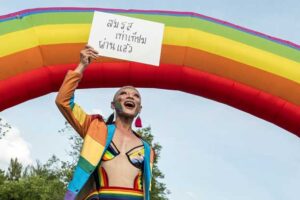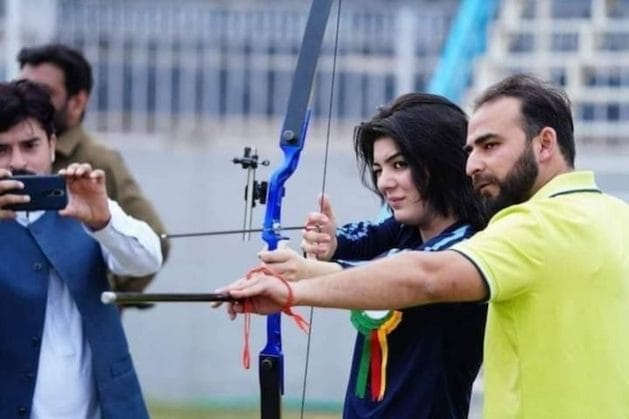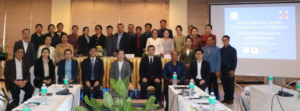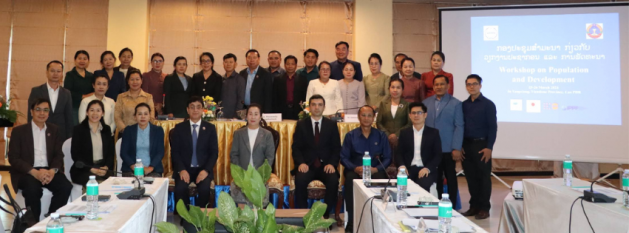
Asia-Pacific, Civil Society, Featured, Gender, Headlines, Human Rights, LGBTQ, TerraViva United Nations

Credit: Chanakarn Laosarakham/AFP via Getty Images
– At the height of 2024 Pride season, decades of civil society campaigning came to fruition in Thailand. With 130 votes for and only four against, on 18 June the Senate passed the Marriage Equality Bill. With a few strokes of the pen, the bill tweaked the language of the Civil and Commercial Code, replacing gendered references such as ‘man’ and ‘woman’ with gender-neutral ones such as ‘persons’ and ‘spouses’. It now goes for formal assent to King Maha Vajiralongkorn and will take effect 120 days after publication in the official bulletin.
This means equal marriage is now recognised in 37 countries. Recent progress has seen Estonia become the first post-Soviet state to join the ranks in 2023, and Greece the first majority-Orthodox Christian country to do so in early 2024. Thailand is the first country in Southeast Asia and the third in Asia, following Taiwan and Nepal, to recognise the right to marry and all associated rights for same-sex couples.
SAME-SEX MARRIAGE AROUND THE WORLD
The long road to equality
With its vibrant LGBTQI+ culture, Thailand has long been advertised as ‘an exceptional destination for gay travellers’. But things weren’t quite so good for local LGBTQI+ people, whose identities and relationships lacked legal recognition and associated rights.
Civil society worked to change that. Efforts to advance the rights of same-sex couples in Thailand date back at least as far as 2011.
The first shift came in 2012, when the government began to consider some kind of recognition for same-sex relations. In 2013 it drafted a civil partnership bill with bipartisan support, but progress stalled under the military government formed as a result of a 2014 coup.
The country remained under military rule until mid-2019, but rather than stopping, LGBTQI+ activism gained strength by connecting with the country’s youthful and outspoken movement for democracy. In 2017, a petition calling for the recognition of civil partnerships gathered over 60,000 signatures. The government responded by preparing a draft bill and holding public hearings where it received overwhelming public support. But by mid-2020, the bill – which activists criticised for not ensuring the same rights as marriage – died in parliament.
When youth-led protests for democratic change erupted in 2020, their demands included LGBTQI+ rights and led to the development of a new bill that was eventually introduced but failed to pass before parliament was dissolved ahead of a general election in May 2023.

LGBTQI+ activists also took to the courts, but received a setback. In 2021, in response to a petition filed by two LGBTQI+ people seeking to get married, the Constitutional Court ruled that the section of the Civil and Commercial Code that defined marriage as being between a man and a woman was constitutional. LGBTQI+ activists were particularly unhappy with the court’s sexist and demeaning language.
Cultural and political battles
Longstanding efforts to normalise the presence of LGBTQI+ people and shift conservative narratives produced high levels of acceptance and support for LGBTQI+ rights. Thailand ranks 44 out of 196 countries in Equaldex’s Equality Index, which rates countries according to their LGBTQI+-friendliness. But unlike most other countries, it places higher for public attitudes than for its laws.
This meant Thai LGBTQI+ activists were able to use the broadly favourable climate of opinion to pressure politicians. They turned LGBTQI+ rights into a bandwagon politicians wanted to join for political gain. As a result, some of the major parties competing in the 2023 election campaigned on pledges to push for marriage equality. This included the progressive Move Forward party, which won the most seats.
But military-appointed senators stopped Move Forward forming a government, and instead Pheu Thai Party, a populist party twice deposed in military coups, formed a coalition with military-aligned parties – not the outcome young democracy activists had hoped for. Still, the new prime minister, Srettha Thavisin, had also promised to send a bill to parliament.
He still took his time, and LGBTQI+ activists gave him the push he needed. By early September 2023, when the new government was sworn in, the Rainbow Coalition for Marriage Equality had collected over 362,000 signatures in support of marriage equality. Srettha sent the bill to parliament in November, and in December debate started on the government’s bill plus three other versions submitted by other parties and civil society.
The House of Representatives passed all four bills with an overwhelming majority, then formed a committee to merge them into one, and passed the combined bill with near unanimity. The Senate completed the process on 18 June.
What – and where – next
The Marriage Equality Bill recognises rights in relation to inheritance, adoption and healthcare decisions. But beyond these direct effects, activists expect it to have powerful indirect impacts, sending a message of acceptance and encouraging younger LGBTQI+ people to come out and lead full lives free of discrimination and violence.
Now marriage equality has been achieved, LGBTQI+ activism is turning to the next big issue – trans rights. Despite playing a prominent role in entertainment, transgender people in Thailand face steep barriers, particularly in employment. They have few legal protections against discrimination, and those that exist aren’t fully enforced. They’re unable to obtain legal documents that reflect their gender identity, and what few rights they have in this regard depend on bureaucratic discretion. To change this, LGBTQI+ activists will keep campaigning for a Gender Recognition Bill.
The significance of the change achieved in Thailand, and the further change that seems sure to come, extends far beyond the country’s borders. Most countries in the region don’t recognise same-sex marriage, and some, including Brunei, Malaysia and Myanmar, still severely criminalise same-sex relations.
Thai activists believe their success can both bring further change at home and set an example for other countries to follow. Given what they’ve achieved, they have every reason for hope.
Inés M. Pousadela is CIVICUS Senior Research Specialist, co-director and writer for CIVICUS Lens and co-author of the State of Civil Society Report.












